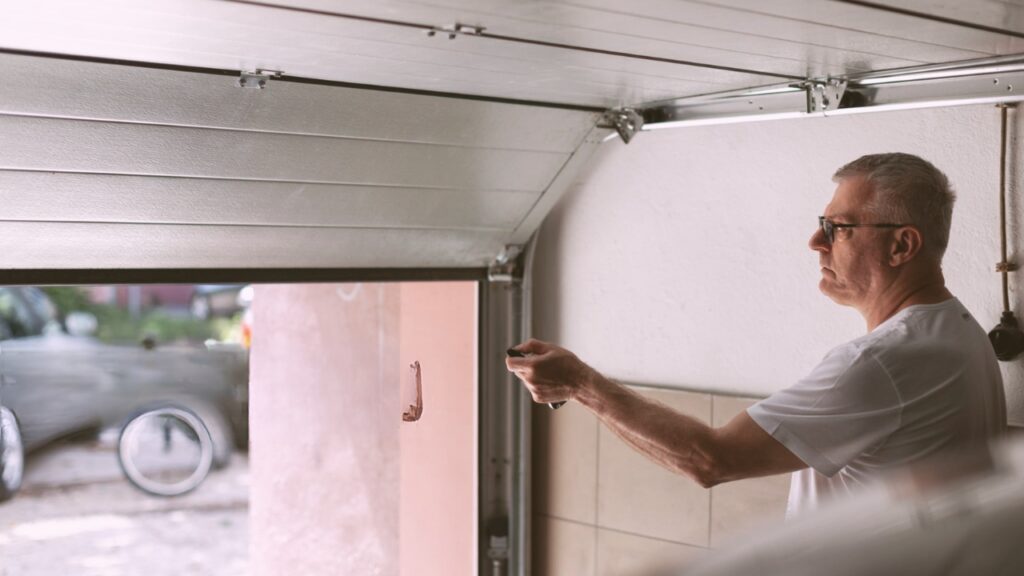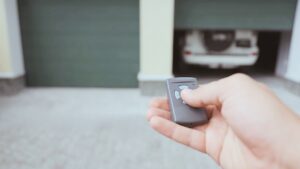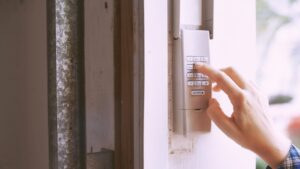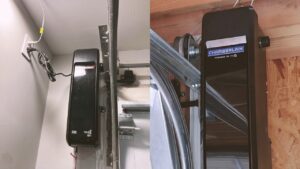Connect With A Garage Expert
Connect with local experts, Compare quotes, Get the best price.
Is your garage door making an embarrassing amount of noise every time you open and close it? The squeaking and rattling sounds are not only annoying to you but likely to bother your neighbors as well. The garage door makes loud noise when opening, indicating a problem that will only get worse over time, eventually leading to broken parts and the need for costly repairs.
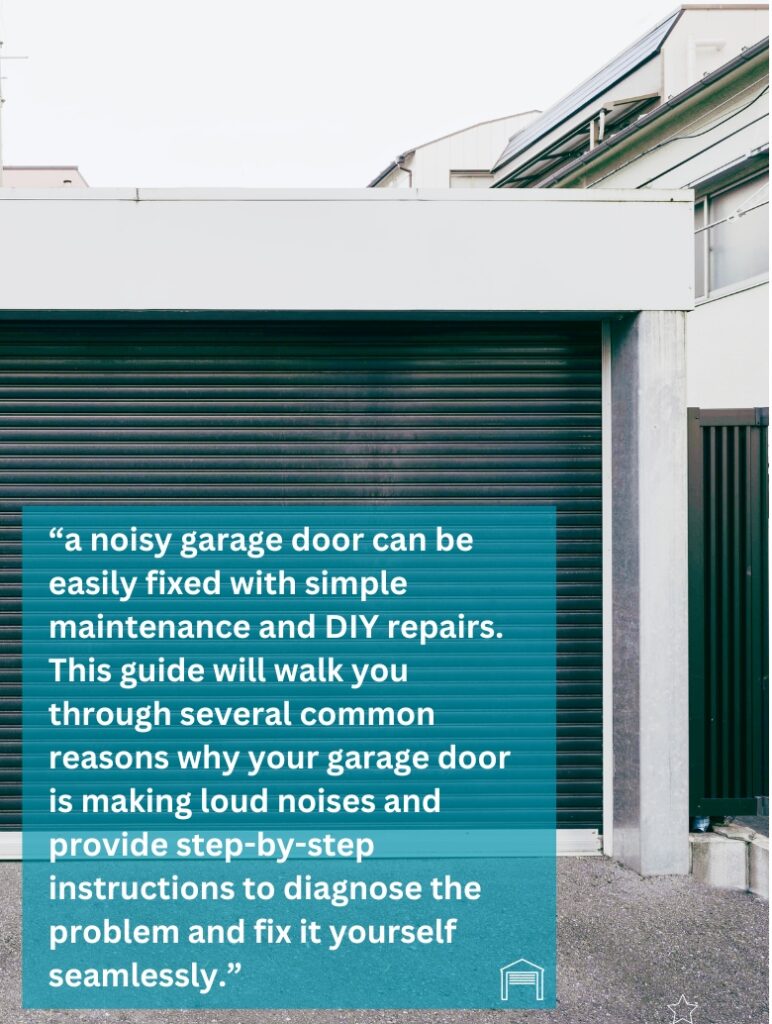
The good news is that, in most cases, a noisy garage door can be easily fixed with simple maintenance and DIY repairs. This guide will walk you through several common reasons why your garage door is making loud noises and provide step-by-step instructions to diagnose the problem and fix it yourself seamlessly.
Why Does the Garage Door Makes Loud Noise When Opening?
A noisy garage door can be caused by various issues, usually related to loose or worn parts. Understanding and identifying this common garage door issue early on can save you time and money, ensuring a smoother and quieter operation.
The main culprits for loud garage door noises typically include:
Loose Parts
Vibration from loose parts causes unnecessary noise each time you use the door. Over time, the vibrations can also cause additional damage to other components.
Loose parts often result from:
- Normal wear and tear from regular opening and closing.
- Vibrations from an improperly balanced door.
- Age and corrosion.
Worn Out Rollers
The rollers allow the door to slide smoothly along the metal track as it opens and closes. But with enough use over time, they wear out. which can lead to a distinct clicking noise as the garage door moves. This sound is a clear indicator that the rollers need inspection or replacement to ensure the door continues to operate smoothly.
Roller noise and issues typically stem from:
- Normal wear and tear.
- Lack of lubrication.
- Debris or dirt buildup on the track.
Improper Installation
Response delays and alignment issues can indicate that the pulley system or other parts were installed incorrectly.
Problems with improper installation often result from:
- Using improper equipment.
- Using lower-quality springs or system parts.
- Human error during the installation.
Poorly Lubrication
Moving metal parts like rollers and hinges require a lubricant to glide and slide smoothly. Metal-on-metal contact causes grinding, sticking, and loud noises without enough lubrication.
A lack of lubrication is usually due to:
- Normal lubricant wears off over time.
- Homeowners need to remember to lubricate regularly.
Door Opener Issues
Opener issues like a worn drive chain/belt, debris buildup, or lack of adjustment can cause unpleasant noise.
Noisy garage door opener issues usually result from:
- Worn, loose, or corroded drive chain/belt.
- Debris buildup in the opener.
- Lack of adjustment/tension.
Imbalanced Garage Door
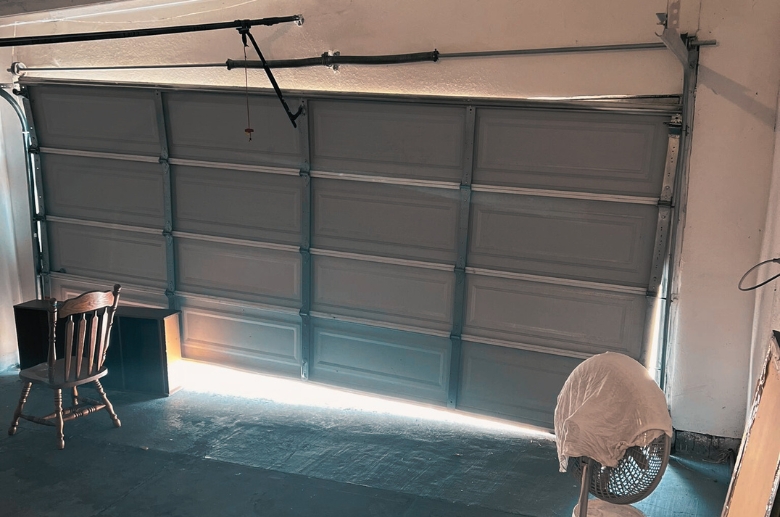
An unevenly balanced door can cause vibrations as it moves along the track. This leads to noise from the door banging around in the way.
An imbalanced door usually results from:
- Improper initial installation and setup.
- Broken or damaged springs that unevenly distribute weight.
- Normal wear and aging of springs over time.
Connect With A Garage Expert
Connect with local experts, Compare quotes, Get the best price.
What Are the Most Common Garage Door Sounds, and What Do They Indicate?
Your garage door can make various sounds, like rattling, banging, grinding, and squeaking. Here are some of the most common reasons:
Rattling
A rattling sound from your garage door can indicate several possible issues:
- Loose nuts, bolts, or screws that need tightening.
- Damaged or worn rollers need inspection and replacement.
- Worn gears, sprockets, or chains in the garage door opener may need lubrication or replacement.
- An imbalanced garage door that is vibrating against the tracks.
In most cases, rattling stems from loose hardware or worn parts that are vibrating as the door operates.
Squeaking
High-pitched squeaking or squealing noises typically mean metal garage door parts are rubbing together without proper lubrication. Common causes of squeaky noises include:
- Dry hinges that need lubricating.
- Sticky or worn rollers that need cleaning and lubricating.
- Lack of lubrication on opener gears or chains.
Banging
An improperly balanced door generally causes loud banging or slamming noises. When the door is out of balance, it can vibrate against the metal tracks as it opens and closes. Banging indicates:
- Broken or damaged springs unequally distribute weight.
- Improperly adjusted springs need to be counterbalanced the door properly.
- An aging door whose springs have worn over time.
Grinding
An ugly grinding noise usually means the rollers are severely worn and moving unevenly along the track. It is the sound of metal scraping forcibly across metal. This grinding can indicate:
- Excessively worn rollers that need replacement.
- Bent tracks or track misalignment issues.
- Debris is stuck in the tracks that need cleaning.
How to Fix a Noisy Garage Door
You can fix the problem yourself by following a few simple steps designed to make your garage door quiet.
Here’s how:
Tools You Need
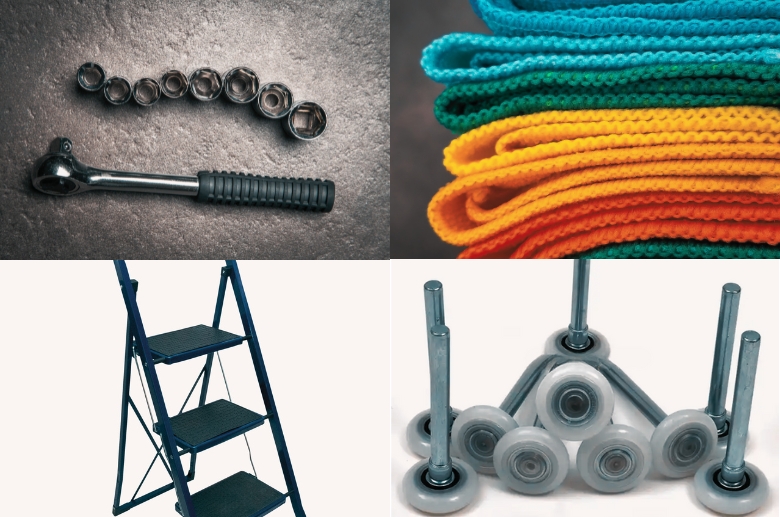
- Garage Door Lubricant or Silicone Spray: This is designed to reduce friction and prevent rust on moving parts. It ensures smooth operation and minimizes wear and tear.
- Rag or Lint-Free Cloth: This is essential for applying and wiping excess lubricant from the garage door components. Keep multiples on hand for regular maintenance, making each application thorough and mess-free.
- Socket Wrench: This is for tightening any loose nuts, bolts, or screws on the garage door hardware.
- Ladder: A ladder allows you to reach higher parts of the garage door, ensuring comprehensive lubrication.
- Replacement Rollers or Hardware: This is for addressing worn or damaged components that may need to be swapped out during maintenance. Invest in high-quality replacement parts to prolong the lifespan between replacements.
Tips Before Starting
Before you begin, remember to do these things:
- Review the manufacturer’s lubrication guidelines.
- Inspect the door to diagnose the source of noise. Look for worn or loose parts.
- Clean the door, tracks, and hardware to remove built-up debris.
- Have replacement parts on hand before beginning repairs.
DIY Disclaimer:
Perform these DIY garage door maintenance steps at your own risk, and seek professional assistance if unsure, as garage doors involve potential safety hazards.
Step 1 – Lubricate the Moving Parts
Grab a can of silicone-based garage door lubricant to kick off the maintenance process. Identify the rollers, hinges, pulleys, and bearings on your garage door, and generously apply the oil to each moving part. Be thorough in ensuring comprehensive coverage. Once applied, use a rag to remove excess lubricant, preventing drips.
This step is crucial as it prevents squeaking and grinding and promotes the longevity of the moving components.
Step 2 – Tighten Loose Hardware
Take a close look at all the nuts, bolts, and screws on your garage door. If you notice any signs of looseness that might be causing rattling, it’s time to tighten things up. Grab a socket wrench and systematically tighten each loose component. This ensures a secure and stable connection, eliminating any annoying rattling sounds that may have developed over time.
Step 3 – Replace Damaged Rollers
Perform a visual inspection to identify any worn or noisy rollers on your garage door. If you spot any, it’s time for a replacement. Carefully remove the damaged rollers from their brackets and install new ones. This step is crucial in stopping squeaking and scraping sounds and restoring smooth and quiet operation to your garage door.
Connect With A Garage Expert
Connect with local experts, Compare quotes, Get the best price.
Step 4 – Adjust the Opener
Refer to your opener manual for guidance on adjusting chain/belt tension. Follow the instructions carefully to make the necessary adjustments. Also, remember to lubricate the gear shaft and chain/belt as the manual recommends. Proper opener adjustment ensures optimal functioning and reduces the risk of unnecessary wear and tear.
Step 5 – Balance the Door
Achieving balance is critical to preventing banging and ensuring the longevity of your garage door. Adjust the springs evenly to distribute the door’s weight appropriately. This stops the annoying banging and ensures proper alignment, contributing to the overall smooth operation of the door.
Step 6 – Clean the Tracks
Utilize a vacuum and a rag to thoroughly clean the tracks along which the garage door rollers move. Remove any debris or dirt that may have accumulated, causing friction and grinding noises. This simple yet effective step contributes to your garage door’s smooth and quiet functioning.
Step 7 – When to Call a Professional
For more complex repairs or adjustments that may be beyond your expertise, it’s advisable to contact a certified garage door technician. A certified technician can provide the expertise to address more intricate garage door issues, ensuring safety and proper functionality.
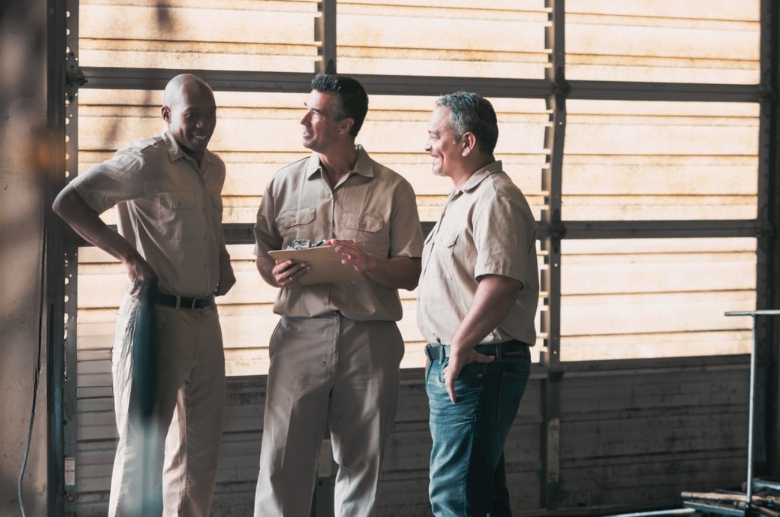
Noisy Garage Door Repair Cost
| Repair Type | Cost Range |
| DIY Lubrication & Minor Repairs | $30 – $150 |
| Professional Service Call | $80 – $150 |
| Roller Replacement | $40 – $60 (per roller) |
| Opener Repair | $150 – $250 |
| Full Garage Door Replacement | $800 – $2,500+ |
The cost to repair a noisy garage door can range from $30 to $300 on average, depending on the specific issue and repair method.
- DIY lubrication and minor repairs: Costs between $30 and $150 for essential supplies needed for DIY lubrication and minor repairs.
- Professional Service Call: Expert service calls range from $80 to $150, ensuring your garage door operates smoothly.
- Roller Replacement: Each roller replacement costs between $40 and $60, which is vital for smooth operation and longevity.
- Opener Repair: Fixing the opener can range from $150 to $250, depending on the complexity of the repair
- Full Garage Door Replacement: A full replacement of the garage door ranges from $800 to $2,500, depending on materials and design preferences.
Final Thoughts
A noisy garage door can be frustrating, but identifying the specific sound and cause is the first step toward a solution. Following thorough DIY lubrication and inspection, minor repairs like tightening hardware can fix many noises. But if the repairs are complicated and don’t solve the problem, contact a garage door technician for safe, reliable service.
Ready to enhance your garage door’s performance and eliminate annoying noises? Get a free consultation now!

